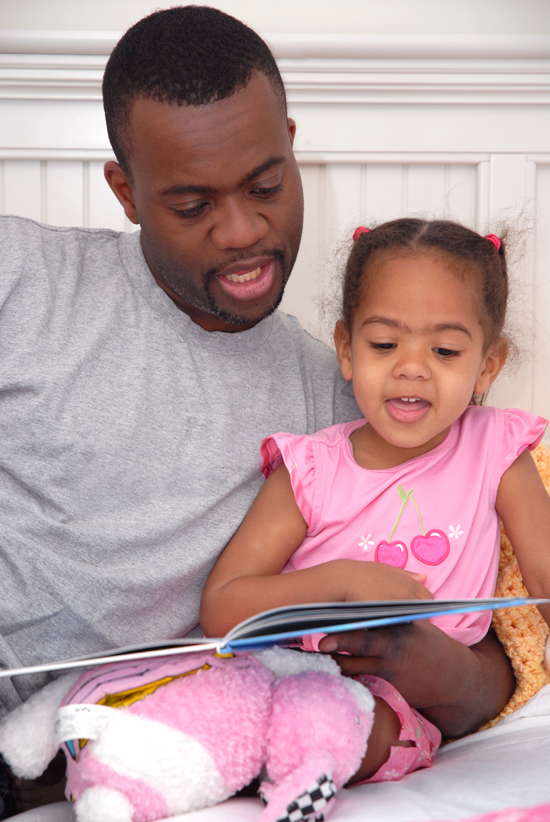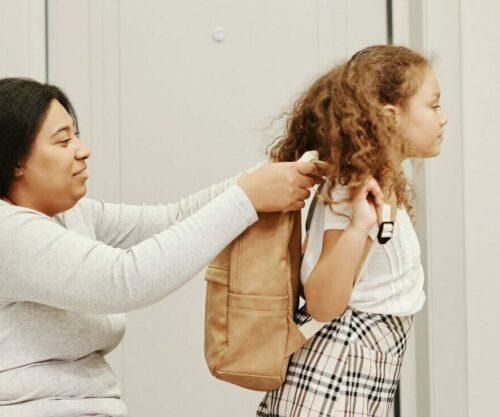
Reading books should be an ongoing discovery of a world filled with excitement, adventure and knowledge, and it’s the responsibility of all parents to nurture and grow the love of reading in your family.
Well-known author, poet, playwright, director, performer and storyteller, Gcina Mhlophe has dedicated her life to contributing to literature and helping to preserve the heritage of African storytelling, and for the past 13 years has worked tirelessly in running NOZINCWADI Mother of Books Literacy Campaign to help make South Africa a reading nation. For Gcina, it all started when she was a little girl and was influenced by her grandmother’s tales. Gcina shares with us some of her tried and tested tips for helping you to encourage your little ones to read. “First and foremost,” says Gcina, “encourage your child to ‘own’ books from an early age. The sooner your child enjoys reading and the value reading can add to their life, the easier it will be to encourage good reading habits going forward.”
The right book for the right age
Finding books that are age appropriate is half the battle. There’s no point in trying to force a child to read something beyond their years. Firstly, they probably won’t understand it, and secondly, if they don’t understand it they will easily become bored and look for something else to do other than reading.
Make reading interesting
Every child has areas of interest. It might be a sport like cricket, fairies, characters from a children’s movie, outer space, places of interest or history. The list is endless and will keep changing as your child grows and they’re exposed to new and exciting subjects at school. As a parent you need to identify their area of interest and get them books that have suitable content. There’s nothing more helpful and satisfying than reading about a topic that’s close to your heart. If reading isn’t interesting, it becomes boring and a chore.
Regular reading
Reading isn’t something that should happen when you have a spare five minutes. Make a point of setting aside a regular time to read to your child (when they’re unable to read for themselves) each day. For children who are old enough to read on their own, it’s still important to set aside ‘reading time’ every day. Depending on the age of your child, you might be happy with one chapter a day. Of course, if the story is gripping, one chapter could become two or three – just to see how the story develops. Encourage the habit, and it’s set for life.
Look forward to reading
Reading to your little one should be something both of you look forward to. Be sure to read out aloud and as animated as possible. Get involved in the story and the characters – shiver when it’s cold, sound happy when you should, and get your child to laugh if that’s what’s happening in the story. Reading is all about bringing the story on the pages to life.
Beyond books
When reading a magazine or newspaper and you come across a picture or story about something your child likes, cut it out and keep it aside to talk about at a later stage. Perhaps this talk could replace a reading slot every now and again so that reading time doesn’t become too predictable. Read the story, talk about it and share ideas. It could be about your child’s swimming hero, it could be the fastest animal in the world, it could be a rare bird, a boxing champion or jewellery making. Again the list is endless.
Language choice
“Please make sure you read in both your mother tongue and English, not only in English!” says Gcina. “A parent’s voice in a child’s memory is a gift they will carry for the rest of their lives!”
Skills for life
Reading books teaches a child many skills they will need and use during their school days. The main advantage of reading is that your child will build up a vast knowledge on any subject, will develop a broad list of vocabulary, and a vivid imagination – which will help when writing essays, no matter their age.
Library
Books are expensive and we can’t afford to buy them every week. The local library is a great place if your child is wanting to try out various subjects or is needing reference books for a school project. Turn library visits into a weekly outing, this also encourages a child to finish a book within a week – in time for the next visit to the library.
Set an example
Let your child see you reading – whether it be books, magazines or newspapers – and especially the pleasure and enjoyment it brings you.
Getting the balance right
Reading should be a part of your child’s life, so encourage a healthy balance between reading and other activities.
Read anything
Reading can be encouraged in small ways as well. If you’re following a recipe, your child could read it out to you, or if you’ve bought a new toy that needs assembling, get your child to read the instructions.
Word games
Here’s a great idea next time you’re travelling in the car. Get your child to read out aloud any words he can find: street signs, street pole adverts, bus stop adverts, shop names, and so on. This might not be reading in the true sense of the word, but it’s fun and could be the motivation your child needs.





